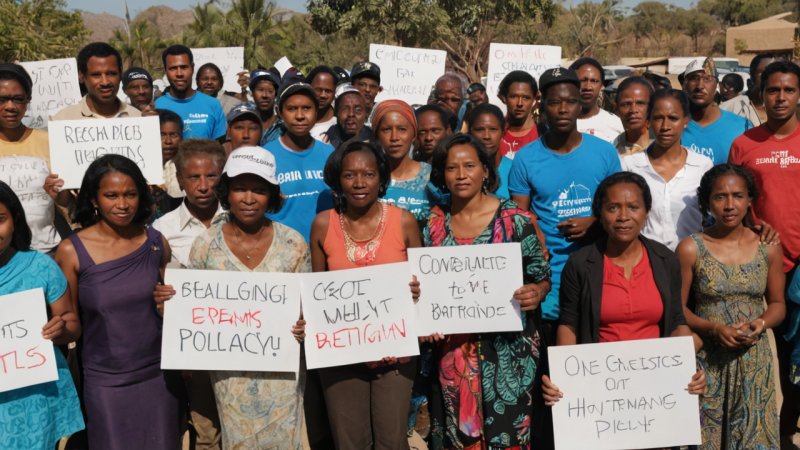Advocacy plays a crucial role in shaping humanitarian policy changes that can significantly improve the lives of marginalized communities. Engaging in advocacy not only raises awareness about pressing issues but also mobilizes support for effective solutions. Here are some actionable steps you can take to become a more effective advocate for humanitarian policy changes.
Understand the Issues
Before you can advocate effectively, it's essential to have a solid understanding of the humanitarian issues at hand. This involves:
- Researching current humanitarian crises and their underlying causes.
- Familiarizing yourself with relevant policies and legislation.
- Connecting with organizations that focus on these issues to gain insights and resources.
Build Your Network
Advocacy is often more effective when done collectively. Consider these approaches:
- Join local or online advocacy groups focused on humanitarian issues.
- Attend workshops, seminars, and conferences to meet like-minded individuals.
- Utilize social media platforms to connect with advocates and organizations globally.
Engage with Policymakers
Communicating directly with those in power can lead to meaningful change. Here are some methods:
- Schedule meetings with local representatives to discuss humanitarian concerns.
- Participate in public forums or town halls to voice your opinions.
- Utilize letter-writing campaigns to express your views and urge action.
Leverage Social Media
In today's digital age, social media is a powerful tool for advocacy. Consider these strategies:
- Share articles, infographics, and personal stories related to humanitarian issues.
- Use hashtags to increase visibility and engage in broader conversations.
- Create petitions on platforms like Change.org to rally support for specific policies.
Educate and Inspire Others
Advocacy can often start at home. Here are ways to inspire action in your community:
- Host informational sessions or workshops to educate others about humanitarian issues.
- Collaborate with local schools or universities to incorporate advocacy into their curriculum.
- Share your advocacy journey through blogs, videos, or community newsletters.
In conclusion, engaging in advocacy for humanitarian policy changes is a vital way to contribute to global improvement. By understanding the issues, building a network, engaging with policymakers, leveraging social media, and educating others, you can play a significant role in driving meaningful change. Your voice matters, and every action counts towards creating a more just and equitable world.






